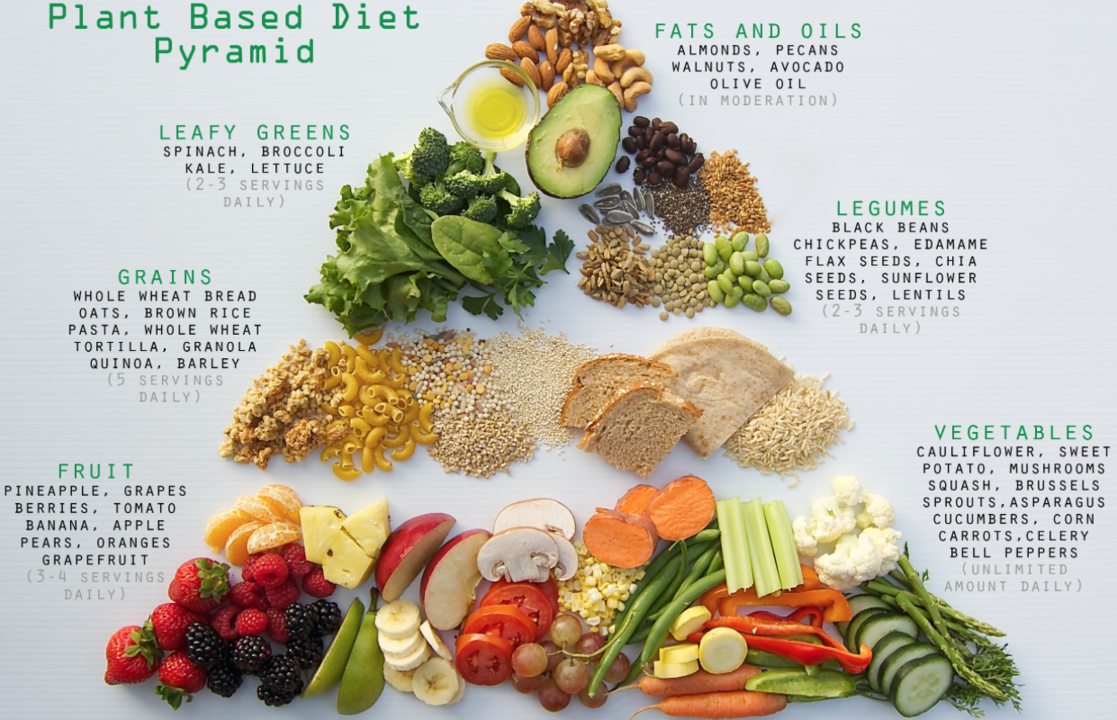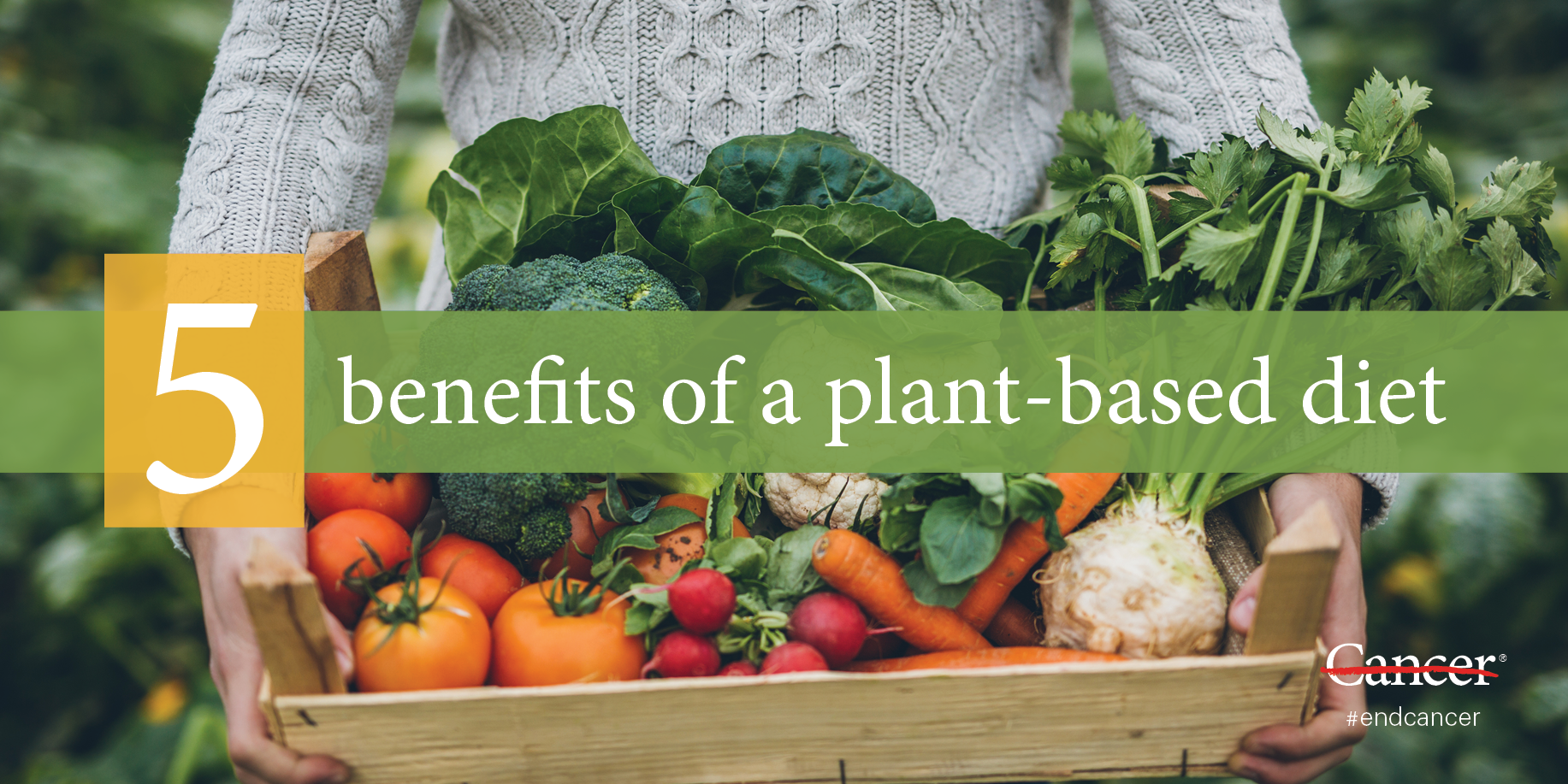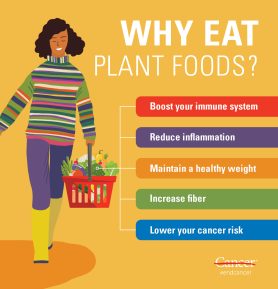The Benefits of Plant-Based Diets
**The Benefits of Plant-Based Diets** Plant-based diets boost overall health and reduce the risk of chronic diseases. They also support environmental sustainability.
Plant-based diets focus on fruits, vegetables, legumes, nuts, and whole grains. These diets provide essential nutrients, including vitamins, minerals, and antioxidants. People who follow plant-based diets often experience improved heart health and better weight management. Lower cholesterol levels and reduced inflammation are common benefits.
Plant-based eating also supports a healthy digestive system. Additionally, it lessens the environmental impact compared to animal-based diets. Adopting a plant-based diet can be both healthful and eco-friendly. This lifestyle choice promotes long-term well-being for individuals and the planet.

Credit: www.linkedin.com
Introduction To Plant-based Diets
Plant-based diets are growing in popularity. Many people find them healthy. These diets focus on foods from plants. They can include fruits, vegetables, nuts, seeds, oils, and grains. Some people eat only plant-based foods. Others include small amounts of animal products.
What Is A Plant-based Diet?
A plant-based diet emphasizes foods from plants. This includes not just fruits and vegetables but also nuts, seeds, oils, whole grains, legumes, and beans. It doesn’t mean you are vegetarian or vegan and never eat meat or dairy. Rather, you are proportionally choosing more of your foods from plant sources.
Historical Background
Plant-based diets have roots in history. Ancient civilizations like Greece and Egypt valued plant foods. They believed these foods had healing properties. Many religious traditions also promote plant-based eating. For example, Buddhists and Hindus often follow vegetarian diets. These traditions have influenced modern plant-based diets.

Credit: www.bayhealth.org
Health Benefits
A plant-based diet offers numerous health benefits. It includes nutrient-rich foods and disease prevention. Eating more plants can improve your well-being.
Nutrient-rich Foods
Plant-based diets are packed with essential nutrients. These nutrients support overall health. Some key benefits include:
- High in fiber which aids digestion
- Rich in vitamins and minerals like Vitamin C and potassium
- Contains healthy fats such as omega-3 fatty acids
Here is a table summarizing some nutrient-rich foods:
| Food | Key Nutrients |
|---|---|
| Kale | Vitamin K, Vitamin C, Fiber |
| Chia Seeds | Omega-3, Fiber, Protein |
| Quinoa | Protein, Iron, Magnesium |
Disease Prevention
Eating a plant-based diet can help prevent many diseases. Key benefits include:
- Lower risk of heart disease
- Reduced chance of type 2 diabetes
- Decreased risk of certain cancers
Plants contain antioxidants that protect your cells. They also have anti-inflammatory properties. This can reduce the risk of chronic diseases.
Environmental Impact
Switching to a plant-based diet has a significant impact on the environment. By choosing plant-based foods, we help reduce pollution and conserve resources.
Reducing Carbon Footprint
Animal agriculture is a major source of greenhouse gases. Livestock farming releases methane and nitrous oxide, which are powerful greenhouse gases. By eating plant-based foods, we can lower these emissions.
Plants require fewer resources to grow. They need less water, land, and energy compared to raising animals. This means a smaller carbon footprint for plant-based diets.
Here are some key points:
- Lower greenhouse gas emissions
- Less water usage
- Reduced land use
Sustainable Farming Practices
Plant-based diets encourage sustainable farming. These practices aim to protect the environment and maintain soil health.
Sustainable farming avoids harmful chemicals. It uses natural methods to enrich the soil and control pests. This helps keep ecosystems balanced and reduces pollution.
Key benefits include:
- Healthier soil
- Natural pest control
- Less chemical pollution
Farmers can grow more food on the same land. This means they can feed more people without harming the environment.
Here is a simple comparison table:
| Conventional Farming | Sustainable Farming |
|---|---|
| Uses chemicals | Avoids chemicals |
| Depletes soil | Enriches soil |
| Harms ecosystems | Protects ecosystems |
By supporting plant-based diets, we promote sustainable farming. This leads to a healthier planet for future generations.
Ethical Considerations
Embracing a plant-based diet offers numerous ethical benefits. These benefits extend beyond personal health. They contribute positively to animal welfare and human rights. Below, we delve into these ethical considerations.
Animal Welfare
Adopting a plant-based diet significantly reduces animal suffering. Factory farming practices often involve cruelty. Animals live in cramped, unsanitary conditions. They endure immense stress and pain. By choosing plant-based foods, you help decrease demand for animal products. This leads to fewer animals being subjected to harsh treatment.
Moreover, plant-based diets promote respect for all living beings. Animals deserve to live without fear and suffering. This aligns with many people’s moral values. Supporting plant-based diets helps create a kinder world.
Human Rights
Plant-based diets also benefit human rights. Many workers in the meat industry face poor working conditions. They often experience low wages and unsafe environments. By shifting to plant-based foods, you support fairer labor practices.
Additionally, plant-based agriculture tends to be more sustainable. It uses fewer resources and produces less pollution. This can lead to better living conditions for communities near farms. They can enjoy cleaner air and water.
Here are some key points:
- Reduces animal suffering
- Supports fair labor practices
- Promotes environmental sustainability
Embracing a plant-based diet aligns with ethical values. It benefits both animals and humans alike.
Economic Advantages
Switching to a plant-based diet can offer numerous economic benefits. This dietary choice helps you save money and supports the local economy. Let’s explore how a plant-based diet can be economically advantageous.
Cost-effective Eating
Eating a plant-based diet is often cheaper. Fruits, vegetables, grains, and legumes are less expensive than meat and dairy products.
- Beans and lentils are affordable protein sources.
- Buying in bulk reduces costs further.
- Seasonal produce is cheaper and fresher.
A simple meal plan could look like this:
| Day | Breakfast | Lunch | Dinner |
|---|---|---|---|
| Monday | Oatmeal | Quinoa Salad | Vegetable Stir-fry |
| Tuesday | Smoothie | Lentil Soup | Chickpea Curry |
Supporting Local Farmers
Buying plant-based foods from local farmers boosts the local economy. Supporting local farmers helps you get fresh and organic produce.
- Visit local farmers’ markets.
- Join a community-supported agriculture (CSA) program.
- Choose locally grown fruits and vegetables.
Supporting local farmers reduces transportation costs and pollution. Your money stays in the community, promoting economic growth.
Common Myths
Plant-based diets often face skepticism due to numerous myths. Many people believe that a plant-based diet can lead to various health issues. This section will debunk some of these common myths.
Nutritional Deficiencies
One common myth is that plant-based diets cause nutritional deficiencies. People worry about missing out on essential vitamins and minerals. However, a well-planned plant-based diet can provide all necessary nutrients.
Iron: Many think iron only comes from meat. But foods like lentils, chickpeas, and spinach are rich in iron.
Vitamin B12: This vitamin is crucial for nerve function. Fortified foods like plant milks and cereals can provide B12. Supplements are also an option.
Calcium: Dairy isn’t the only source of calcium. Leafy greens, tofu, and almonds offer plenty of calcium.
Protein Sources
Another myth is that plant-based diets lack sufficient protein. Many believe that only animal products can provide high-quality protein. This is simply not true.
Legumes: Beans, lentils, and peas are excellent protein sources. They are versatile and can be used in many dishes.
Nuts and Seeds: Almonds, chia seeds, and flaxseeds provide protein and healthy fats.
Whole Grains: Foods like quinoa, brown rice, and oats are also high in protein.
Here is a table summarizing some plant-based protein sources:
| Food | Protein Content (per 100g) |
|---|---|
| Lentils | 9g |
| Chickpeas | 19g |
| Almonds | 21g |
| Quinoa | 14g |
As shown, plant-based diets can meet all your protein needs. The key is to include a variety of foods.
Practical Tips
Switching to a plant-based diet can be exciting and beneficial. To make the transition smooth, practical tips are essential. This section will cover meal planning and a shopping guide. These tips will help you enjoy a healthy and varied plant-based diet.
Meal Planning
Meal planning is crucial for a successful plant-based diet. Here are some tips:
- Start simple: Begin with easy recipes.
- Batch cooking: Prepare meals in bulk.
- Balance nutrients: Include proteins, carbs, and fats.
- Variety: Try different vegetables, grains, and legumes.
Here is a sample weekly meal plan:
| Day | Breakfast | Lunch | Dinner |
|---|---|---|---|
| Monday | Oatmeal with fruits | Quinoa salad | Veggie stir-fry |
| Tuesday | Smoothie | Bean burrito | Lentil soup |
| Wednesday | Avocado toast | Chickpea salad | Tofu curry |
| Thursday | Chia pudding | Veggie wrap | Stuffed peppers |
| Friday | Fruit salad | Falafel bowl | Vegetable pasta |
Shopping Guide
Shopping smart makes plant-based eating easier. Follow these tips:
- Make a list: Plan your meals and list ingredients.
- Shop seasonal: Buy fruits and vegetables in season.
- Check labels: Look for plant-based options.
- Buy in bulk: Stock up on grains, beans, and nuts.
- Visit farmers’ markets: Fresh and local produce is best.
Remember to explore new foods and have fun. A plant-based diet can be delicious and nutritious!
Popular Plant-based Recipes
Plant-based diets are gaining popularity for their health and environmental benefits. One reason for this rise is the variety of delicious recipes available. Below, we explore some popular plant-based recipes for breakfast and dinner.
Breakfast Ideas
Starting your day with a plant-based breakfast can be both nutritious and tasty. Here are some simple and delicious options:
- Smoothie Bowls: Blend fruits like bananas, berries, and spinach with almond milk. Top with nuts, seeds, and granola for a crunchy texture.
- Overnight Oats: Mix rolled oats with almond milk, chia seeds, and a touch of maple syrup. Leave in the fridge overnight and enjoy in the morning.
- Avocado Toast: Spread mashed avocado on whole-grain toast. Sprinkle with salt, pepper, and a dash of lemon juice for added zest.
Dinner Options
Plant-based dinners can be hearty and satisfying. Here are some popular dinner recipes:
- Chickpea Curry: Cook chickpeas with tomatoes, onions, and spices like cumin and turmeric. Serve with brown rice or quinoa.
- Stuffed Bell Peppers: Fill bell peppers with a mixture of quinoa, black beans, corn, and spices. Bake until tender and enjoy.
- Veggie Stir-Fry: Sauté a mix of your favorite vegetables in olive oil. Add tofu for protein and serve over brown rice or noodles.
These recipes are not only delicious but also easy to prepare. They ensure you get a variety of nutrients every day.

Credit: www.mdanderson.org
Conclusion
Embracing a plant-based diet offers numerous health benefits and positively impacts the environment. It can improve heart health, boost energy levels, and promote weight management. Transitioning to plant-based eating is a step towards a healthier lifestyle and a sustainable future.
Start incorporating more plant-based meals today for a better tomorrow.







